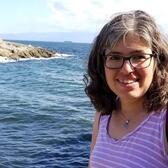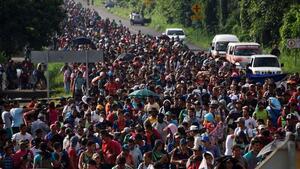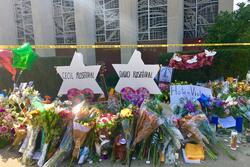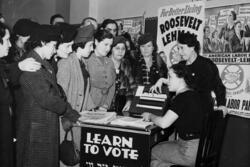The Land of the Living
This past Sukkot, my rabbi gave a participatory d’var Torah asking the congregation to share what we thought was the most important line in Hallel, the supplemental prayers of praise we recite at festivals. Immediately, I raised my hand, and shared the sentence that has always resonated with me: “I will walk before G-d in the land of the living.”
It was not the answer he was looking for.
When I was asked to explain why I thought this line was the most central, impactful line of Hallel, I know I said something. But I also know that it wasn’t a substantial something. It bothered me afterward that I couldn’t fully articulate my feelings about this particular sentence. While this line is ostensibly about resurrection, it has always elicited a different connotation for me; it’s one of two excerpts from the liturgy that most relate to my chosen work. For over twenty years, I have worked in the domestic and sexual violence field, supporting survivors and providing training and prevention programs for the communities I serve. That line from Hallel, “I will walk before G-d in the land of the living,” feels reflective of my work: striving to ensure that survivors have the freedom to live safe and healthy lives. While I was not able to fully articulate why this line is so important to me a few weeks ago, I have since gained clarity.
So what changed between then and now to give me that insight? Multiple events have rocked the American news cycle since Sukkot that have caused me to reflect on this line and its meaning. First, we are watching as thousands of migrants from South America make their way through Mexico with the hopes of finding safety and asylum in the United States.The debate about who they are and what they are doing rages. The current administration is busy making claims that the caravan is full of criminals, and is threatening to cut aid to the countries the migrants are fleeing from. But while those in power create this false narrative, all I see are folks who are simply trying to live—fully live, uninhibited by the fear of violence or the specter of crushing poverty.
Second, we are witnessing the administration’s concerted efforts to roll back protections for and eliminate recognition of the transgender community. Trans folks are feeling the need to assert their very existence with signs that read, “I will not be erased.” In Massachusetts, where I live, we have a ballot initiative that seeks to remove existing protections in public accommodations for the trans community, which we have had in place since 2012. I honestly cannot imagine what motivates someone to actively work towards taking someone else’s rights away. What is there to gain from making someone else less free? Each time I see someone having to hold a sign affirming their very right to be who they are, again, all I see is someone who is simply trying to live—fully live, without fear of discrimination or harassment.
In light of the aforementioned events, and especially in the wake of the shooting at Tree of Life Synagogue in Pittsburgh just a few days ago, the essence of this deceptively simple excerpt has become apparent to me. The power of this line is centered in that last word: “living.”
“I will walk before G-d in the land of the living.”
Eleven souls went to synagogue the morning of October 27 to live their Jewish lives in community with others. Eleven souls were taken, and their loved ones will now live a little less fully because of that loss. The entirety of the Jewish community is left wondering how to proceed in the wake of such violence. The essence of that line is embodied in our commitment to move forward, to honor the memories of those lost, and to truly live: live by engaging in the world completely and without oppression. Live by continuing to gather in Jewish spaces without being hobbled by fear. Anything less than that is to merely exist.
I do not want to continue to bear witness to injustice and intolerance. My heart breaks when I see people who carry the weight of other people’s hate, like it does when I see assault survivors carry the burden of their offenders’ violence and abuse. I want to be in a world where all those around me get to not just exist, but fully live. I want to raise my children in an environment that allows folks to breathe deeply, function without fear, and be who they truly are. But it takes more than just wanting.
The creation of a world in which all are free requires me to actively work towards justice: for the survivors I serve, whose stories I hear each day of my working life; for immigrants whom I may never meet, and whose individual stories I may never hear; for my transgender friends and neighbors, whose stories intersect with mine every day; for communities that worship, and should be able to do so without fear. I will not sit passively; I will walk, move, and take up space before G-d. My profound wish is to enable others to walk, move, take up space, and fully live—so that we may all walk together “in the land of the living.” This line is aspirational, a call to action, and my constant charge. I will vote, protest, organize, and agitate, walking before my G-d, working towards a world of lives fully lived.







